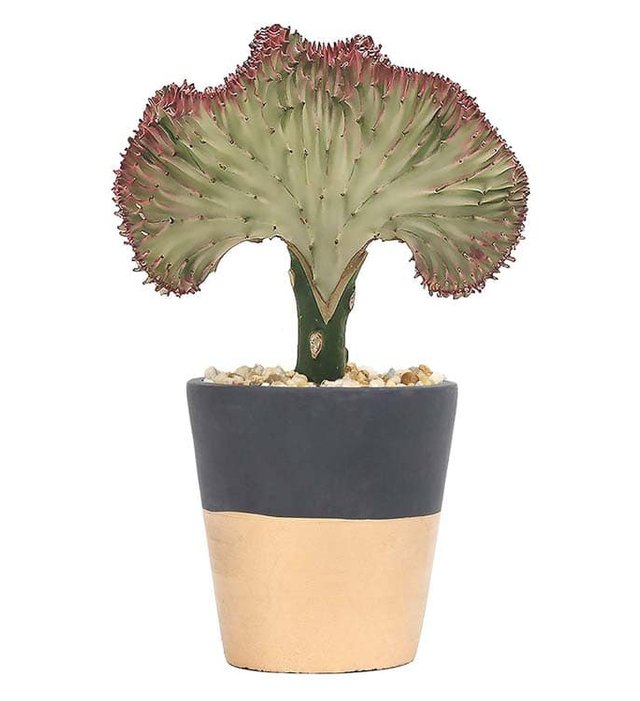Coral Cactus Live Indoor Tabletop Plant – Costa Farms
Coral Cactus consists of two words – Coral and Cactus. It is a plant that has two succulent plants. Its botanical name is Euphorbia lacteal Crest.
This weird-looking plant closely resembles an ocean coral. It is extremely hardy and requires almost no care to survive. Its green and pinkish color makes it a popular choice in many gardens, even though it can also be used to increase the appeal of the ambiance indoors. It is a small plant that does not grow more than 25 inches in height .

The plant is a result of grafting the crest-shaped top of a Euphorbia Lactea on the stock and root of a Euphorbia neriifolia, or on the root of a cactus. The plants have their origins from the nurseries of a few experimental horticulturists. Although the grafting process is a little complex, taking care of a successfully grafted plant is a piece of cake in comparison. We shall first look at how the plant is grown and propagated followed by tips on coral cactus care, to help it thrive.
- A v-shaped cut has to be made at the base of the Euphorbia lactea plant's crest. The cut should curve outward.
- Now the root stock of the cactus or Euphorbia neriifolia has to also be cut in a v-shape. However, the cut must curve inwards.
- Now place the two sections together in such a way that the joint comes together well.
- Cover the joint with grafting wax, to prevent the plant from drying, and tie the plant with rope or twine to hold the two pieces of the plant together till it heals.
- If the two plants are compatible, the graft should completely heal in a few weeks. If you find that the plant has not healed fully, replace the wax and rope. However, be careful during this time, as a little damage can set back the healing process considerably.
- Babies of the coral cactus will eventually grow from the same plant. Cut off these new growths, and dry them for a couple of weeks and pot them. The plants will soon get roots. After this happens, plant the saplings in the soil; however, these new saplings may or may not form crests, and there is no way to force the way these plants will grow. If your new euphorbia does form crests, you may have to repeat the above process all over again.